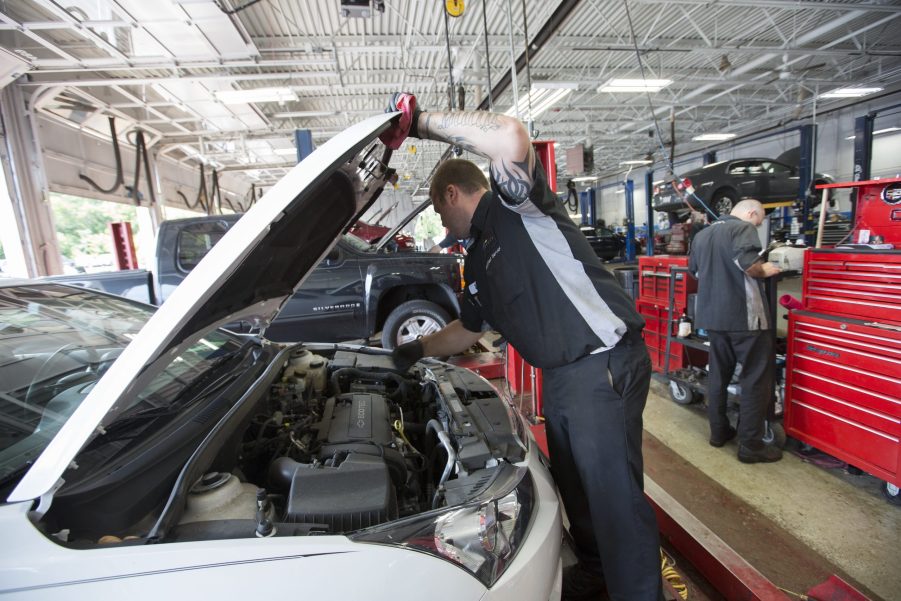
What Do You Do When Your Car Has Been Recalled?
You wake up, grab a coffee, and sit down before getting ready for work, and there it is. You see the headline, your car, your great, lovely, dependable car, has been recalled for something or other. What do you do? Is it safe to drive? Is your car all of a sudden a lemon? Who do you call? All you know is, there is a recall out for your car.
Recalls are stressful and sometimes confusing because they are all different. The severity can range from something you feel you can get around to fixing or something that may cause a fire. One thing is for sure; manufacturers don’t want to issue recalls. It is not a good look for them. So, if there is a defective part of your car that warrants service, get it done as soon as possible.
Your car was recalled. What do you do?
The fine folks at Consumer Reports know a thing or two about this. William Wallace (As far as I know, not the Scottish freedom fighter), Manager of safety policy at CR, says, “Every safety defect puts people at risk and recalls should be taken seriously.” This is rule number one for anything service-related.

Recalls result from a safety problem that has been well documented and identified as either a consistent manufacturing flaw or a problem that develops prematurely. The federal government has regulated safety recalls since 1966. The goal is to keep a non-biased party to have oversight of the safety of car manufacturing. The group responsible for these safety concerns is the National Highway Traffic Safety Administration, an agency within the U.S. Department of Transportation.
Is it safe to drive your car after a recall?
That depends on the issue. Automotive safety problems aren’t a one-size-fits-all deal. According to John Ibbotson at CR, “The recall notice itself will tell you if it is safe to drive or not, or if it needs to be put outside.” Typically the recall notice will you whatever relevant information pertains to you and your car. For instance, certain Hyundai and Kia models were spontaneously catching fire. Although the recall hasn’t happened for America yet, the overseas recall urged owners not to keep the car in or near the house until the issue is resolved.
In some rare cases, like CR notes about BMW and Ford Takata airbags, the recall for those models issued a “do not drive” warning along with recall instructions. The point is, the recall will give the owner any relevant information for safety. Either way, whether serious or otherwise, recalls should be tended to as early as possible.
How does a recall happen?
More often than not, the manufacturers will typically announce the recall on their own because failure to disclose any potentially dangerous flaw or issue could result in legal action and typically hefty fines for the automaker.

Luckily, the manufacturing process is highly regulated and recorded. So, once a problem has been identified, the automaker can usually pinpoint almost to the day of when a defective part or procedure was used. Sometimes, like in the Hyundai and Kia cars catching fire, an investigation from the state may uncover the problem.
Once a recall has been announced, the documented owners of the affected models will get certified mail from the manufacturer describing the recall and offering a solution.
How do you get your vehicle fixed?
Most of the time, you are required to take it to the dealership for the defective part to be fixed. Federal law says that recall repairs and servicing must be free of charge for any vehicle that is up to 15 years old. CR says that even cars older than 15 years can get the hook up for free. Dealers and manufacturers will often offer to fix them free of charge, but they are not required to. CR recommends that you ask nicely and cross your fingers.
Obviously, the length of time that your ride will be in the shop depends on the reason the service alert issued. Either way, If an issue was deemed unsafe enough for the manufacturer to issue a recall, you can trust that it’s worth getting the work done no matter the inconvenience.
Pro tip: Check out the service history of used cars
According to Federal law, dealers can sell used cars with open recalls, but it is against the law to sell a new car with one. So before you buy a used car, make sure to look it up and check its recall history or current status.



